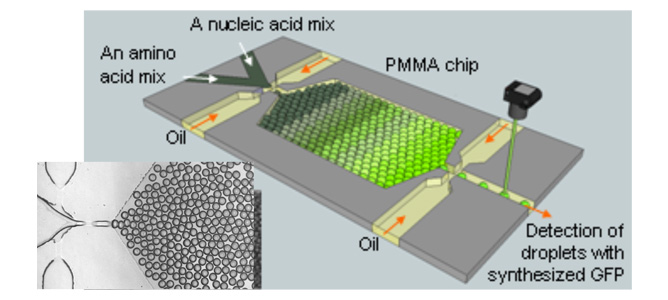Evolving enzymes on a microchip

A picture of a microchip developed in CSIRO Microfluidics Lab for synthesis of a green fluorescence protein molecule
October 2011
Dr. Yonggang Zhu’s Fellowship project aims to develop an integrated microfluidic chip that can perform in vitro enzyme synthesis and evolution. This technology could potentially revolutionise nano- and bio-technology development.
The current protein evolution protocol requires screening of ‘libraries’ of massive numbers of candidate gene/enzyme variants, at a cost between millions and billions and take several years to complete. This project proposes to use microfluidic water-in-oil droplets to compartmentalise these libraries. These discrete micro-droplets are ideal bioreactors in which enzymes can be synthesised, screened and selected. The high level of controllability and speed of droplet production in microchips (~103 drops per second) allows for unprecedentedly fast and low-cost screening of massive libraries, with a potential 106-fold reduction in time and cost in comparison with existing technologies.
MCN’s state-of-the-art lithographical tools, characterisation tools and biological labs will be fully utilised for the project.
This work could potentially lead to a new way of developing novel biomolecules. Such a development would benefit many industry sectors such as biotechnology, chemical manufacturing, in vitro cell-free protein evolution, biomaterials, sensing and drug development.


